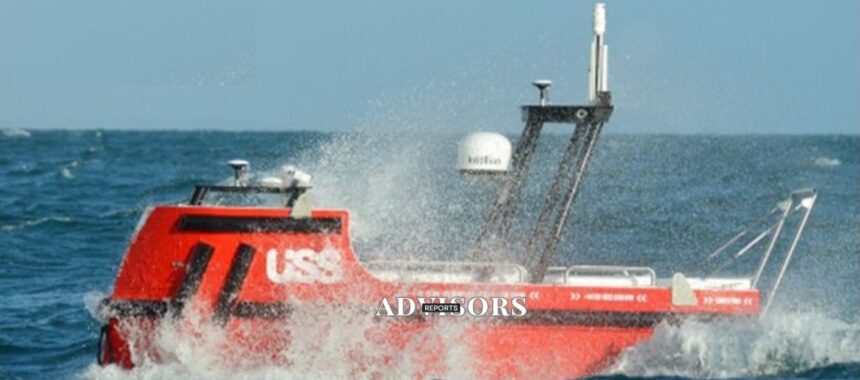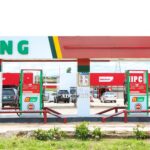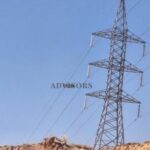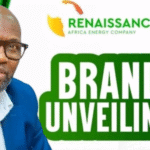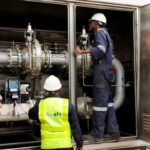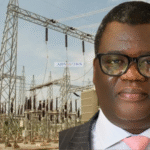… reduces risks to personnel, environment
… cuts costs, time,
Oredola Adeola
Shell Petroleum Development Company of Nigeria Ltd (SPDC) has recently deployed Accession 500, an Uncrewed Surface Vessel (USV) for a pipeline route survey in the Niger Delta region.
Advisors Reports gathered that the innovation, which is the longest USV deployment for a pipeline route survey in the Shell Group, has been successful in reducing costs, saving time, and significantly minimizing risks to personnel and the environment.
This was disclosed in a statement released by Abimbola Essien-Nelson, SPDC Media Relations Manager, and obtained by Advisors Reports at the weekend.
According to the statement, the USV, which is remotely controlled by personnel on shore, runs along survey lines on a pipeline route powered by diesel engines, in the first crewless survey in Nigeria.
The SPDC revealed that the survey ran non-stop for 166 hours and the results came in real-time with better quality data.
Steve Keedwell, SPDC’s Chief Surveyor and Head, Offshore Survey Operations, “We’re excited at the improvements in the new face of survey in Nigeria.
“It would have taken greater time and effort and cost more money to mobilise personnel and materials for this type of survey with high energy consumption, safety exposure and the risk of low-quality data.
The results came in faster with higher quality as the human element was reduced to its barest minimum,” Keedwell said.
Advisors Reports gathered that SPDC began efforts to introduce crewless surveys in 2019 after the technology was successfully tested and deployed in other Shell Operating Units.
It was revealed that the restrictions on physical presence at work sites at that time due to COVID-19 restrictions helped to speed up the process.
SPDC in the statement further disclosed that during the Covid period, it also saw an opportunity to further develop Nigerian content and worked with an indigenous vendor, Compass Survey Ltd which deployed the vessel with support from their technical partners, Unmanned Survey Solutions, UK.
Bonny was the choice for the first survey because of a project around the landfall area which required using a vessel with a very shallow draft. An uncrewed vessel was the answer as it reduces exposure to health, safety and environment due to the shallow water area that needed to be surveyed.
Project manager Compass Survey Ltd, Joshua Oriero, who monitored the exercise said: “The Bonny deployment was a huge success. The team comprised pilots, surveyors, an engineer, data processors and an onsite remote operator for human intervention where necessary.
The USV was operated and monitored remotely through a secure internet connection. The unit was set to travel to the survey location, and it started running the survey lines already programmed into the autopilot system.”
There was a drastic reduction in carbon emission. For example, less than 27 litres of diesel were consumed per day, compared to more than 1,500 – 6,000 on traditional vessels depending on the size. The amount of energy saved would even be higher over the seven days of a typical deployment.
Previously, human error during offset measurements and calibration posed significant challenges in surveys. Purpose-built USVs equipped with permanently mounted sensors eliminate these error sources, leading to improved data quality due to the reduction of noise from generators usually used on crewed vessels.
Lanre Olawuyi, General Manager, Nigerian Content Development, SPDC while expressing his excitement in the prospects of the technology in Nigeria, said, “Despite concerns about job losses, crewless surveys will create new employment opportunities.
Advisors Reports further gathered that the contractor and their technical partner have already trained a Nigerian remote operator in Bonny.
Olawuyi therefore expressed hope that as the technology expands in-country, more people will gain skills as engineers, remote helmsmen, data processors and online surveyors to support uncrewed surveys, along with USV maintenance personnel.
He said, “Already, the innovation in the survey at Bonny is attracting interests from the oil and gas industry and beyond, which means it stands a good chance of being widely used in Nigeria. We will continue to support Nigerian companies in the domestication of technology and innovations.”
SPDC has expressed its determination to apply the lessons from the Bonny exercise in future deployments.
These, according to the company, include the availability of spare parts to avoid delay in repairs, the need for a robust system to manage the large volume of data acquired in a short time, and the presence of fishing nets on the survey route.

